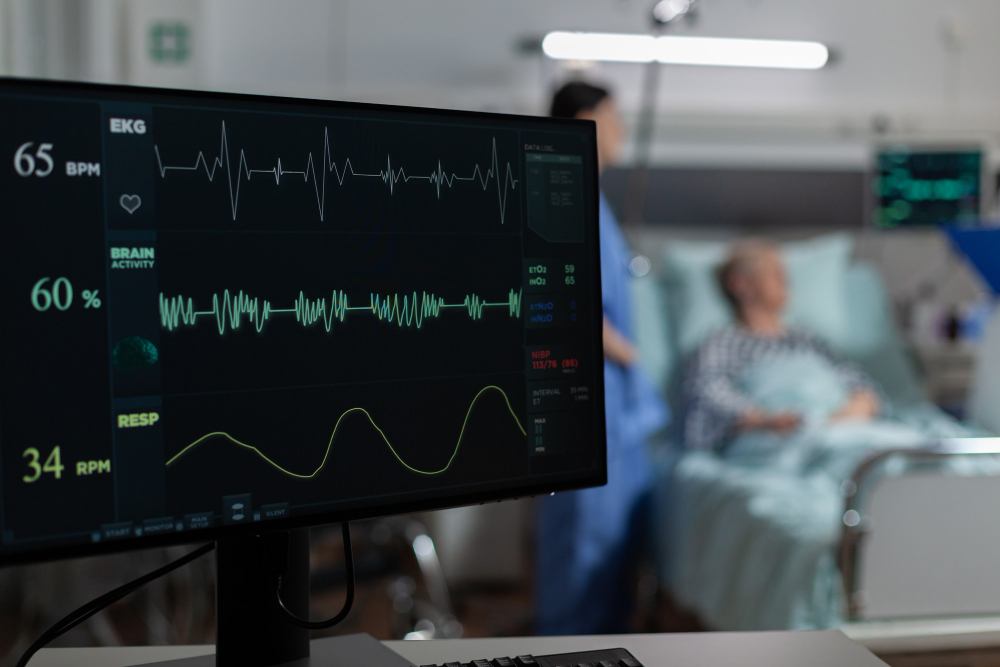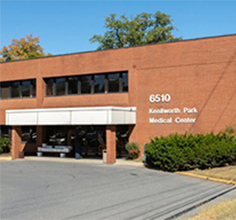
An electrocardiogram (EKG or ECG) is a crucial diagnostic tool that offers valuable insights into the functioning of the heart. This non-invasive procedure records the electrical activity of the heart over a specific period, giving healthcare professionals essential information to assess heart health. In this article, we provide a brief introduction to the electrocardiogram and how you might want to prepare for an ECG/EKG appointment.
If you’d like to consult with a licensed primary care physician, then call Southern Maryland Medical Group to speak with a member of our team. With that said, let’s dive into the world of electrocardiograms.
An EKG is a graphical representation depicting the rhythm and timing of each heartbeat. This diagnostic test involves placing small electrodes on the skin, typically on the chest, arms, and legs. These electrodes detect the electrical impulses generated by the heart and transmit them to the EKG machine, which then produces a visual representation known as an electrocardiogram.
The EKG waveform consists of specific components, including the P wave, QRS complex, and T wave. Each of these corresponds to different phases of the cardiac cycle. Analyzing these components allows healthcare professionals to assess the heart's health, identify irregularities, and diagnose various cardiac conditions.
Patients who have experienced a heart attack or other cardiac events may undergo EKGs as part of the post-event evaluation process. This helps healthcare professionals gauge the extent of damage and plan appropriate interventions.
But it’s not just heart events that warrant an EKG. Individuals with chronic conditions such as diabetes, hypertension, or a history of heart disease may undergo regular EKGs as part of ongoing monitoring to track any changes in cardiac function.
Anyone experiencing symptoms such as chest pain, palpitations, shortness of breath, or dizziness may be recommended to undergo an EKG. These symptoms could indicate underlying cardiac issues that require prompt evaluation.
If you experience chronic or severe heart pain, then contact Southern Maryland Medical Group to see one of our licensed primary care doctors. Irregular heart beating, discomfort in the chest, and shortness of breath are some signs that can call for an EKG test.
While an EKG is a relatively simple and non-invasive procedure, preparing beforehand can streamline the process. For beginners, refrain from applying lotions, oils, or creams on the chest on the day of the EKG. These substances can interfere with the electrode-skin contact and affect signal quality.
It’s important to stay relaxed. In fact, wear loose-fitting clothing that allows easy access to the chest, arms, and legs. This facilitates the placement of electrodes without interference. This non-invasive procedure is painless and only takes a little time.
It’s important to consult with a dependable primary care physician regularly to keep up with your overall health but especially your heart health. Call Southern Maryland Medical Group to schedule an appointment or arrange a walk-in to see a licensed primary care physician as soon as possible.
Southern Maryland Medical Group has 3 convenient locations to provide professional medical care services in the Southern Maryland area. Call or schedule an appointment with one of our locations to get medical care help.

5801 Allentown Road, Suite 400 Camp Spring, MD 20746
Phone: 301-868- 0150
Billing Inquiries: 301-552-1270
Fax: 301-868-0243

7500 Greenway Center, Dr #1200 Greenbelt, MD 20770
Phone: 301-486-7580
Billing Inquiries: 301-552-1270
Fax: 301-486-7581

6510 Kenilworth Ave, Ste 1400, Riverdale MD 20737
Phone: 301-618-0771
Billing Inquiries: 301-552-1270
Fax: 301-618-0772